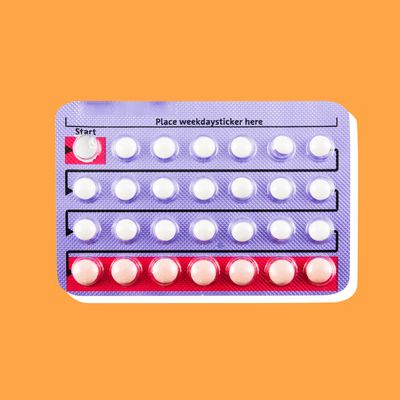
I remember a friend of mine in college raving to a bunch of us about how she skipped the placebo pills at the end of her birth control packs, going straight to the next pack, allowing herself to avoid getting a period entirely. I was sure she was rotting from the inside out, and I went on about about how it was so unnatural, and that she had to let her womb breathe and renew itself, or whatever. My friend then said that, actually, her gynecologist had told her that having periods every month for years, uninterrupted, was itself the “unnatural” thing, since back in the day we all used to be pregnant all the time. This silenced everyone, and it’s stuck with me.
It’s been generally understood that skipping the placebo week of hormonal birth control allows women to also skip the inconvenient accompanying week of bleeding, but many women reserve this option only for “special occasions.” Indeed, Planned Parenthood’s website has a section on how to do this, noting that “there’s nothing dangerous or harmful about using the pill to skip your period” for “a vacation or a hot date,” for instance. The CDC’s 2016 guidelines for contraceptive use (their most recent) similarly acknowledge that combined hormonal contraceptives “are sometimes used for an extended period with infrequent or no hormone-free days.”
But why do we return to having these pseudo-periods in the absence of special events? Since hormonal birth control pills typically suppress ovulation, these “periods” are instead technically known as “withdrawal bleeding” — or, withdrawal from taking hormones, which causes the uterine lining to shed. But if there’s been no ovulation, does the uterus really need to shed? Is there a need to bleed? That is the question. Aside from a vague inclination toward mimicking a more “natural” way of doing things, or of wanting to link up with the moon, the answer seems to be: No. There doesn’t seem to be a single meaningful medical or scientific reason why pill-takers would want to keep having these fake periods, beyond the psychological “you’re not pregnant” reassurance they provide (although even then, the withdrawal bleeding is not a guarantee). There is no “shedding is healthy, shedding is renewal” rationale, for instance. I feel almost ridiculous for wondering this, but I took the pill (and bought tampons) for YEARS! I’m scandalized!
Late last week, the U.K.’s Faculty of Sexual & Reproductive Healthcare (FSRH), which sets national standards there for sexual health and family planning, issued a new set of contraceptive guidelines, in which they state repeatedly that skipping the placebo week of hormonal birth control pills carries no medical risk: “It should be made clear to women that this bleed does not represent physiological menstruation,” the authors write, “and that it has no health benefit.” (It’s worth noting that women with IUDs often experience no — or very light — periods.) The drawbacks to taking the placebos and experiencing “withdrawal bleeding,” on the other hand, are measurable, and can include “heavy, painful, or simply unwanted” bleeding; “headache and mood change”; and possibly increased risk of unwanted pregnancy, due to “errors in pill-taking.” (Here are those new guidelines — clicking the link also initiates a download of the FSRH’s 108-page PDF.)
But again: Are there any good reasons that we’ve been doing this since the advent of the pill, in 1960? (Has it all because of Big Tampon? Big Pad??)
Slate’s Shannon Palus asks the same question: “Why do we have medically unnecessary placebo pills in the first place?” (She notes that researchers have known for decades of the placebos’ non-utility.) Palus points to a recent Telegraph story that offers a sort of wild answer: something colloquially known as the “Pope Rule,” wherein period-mimicking bleeding windows were originally “built into the pill in an attempt make birth control more acceptable to the Pope,” Palus writes.
Apparently one of the pill’s developers, a Catholic, thought the Pope might be more likely to accept the pill if it more obviously “imitated the natural cycle.” (When this didn’t work, the developer apparently “just simply stopped being a Catholic.”) As one FSRH representative subsequently told Vice, however, there were additional reasons why the original pill included a seven-day break, including that the pill used to contain 100 times more hormones than it does today, causing women to feel “dreadful” and want a break, and that the bleeding initially reassured women that they weren’t pregnant, as noted above. But nowadays, the seven-day break is essentially vestigial.
As Palus writes, “The fact that monthly bleeding — unpleasant and painful for many women — is baked into the very design of our medicine is an example of how deeply establishment medicine can fail our needs.”
But monthly bleeding is also “baked into” the very design of our actual bodies … right? Although I’m now thinking again about my friend in college pointing out how “natural” it once was to be pregnant all the time. “We don’t need a regular monthly bleed to be healthy,” said Sarah Hardman, co-director of the FSRH, in a press statement.
It’s taken me years to collect and curate a perfect arsenal of period accouterments — my Clue app, my Thinx underwear, my Diva Cup — and the idea that I could have just been taking the pill around the clock this whole time is sort of funny. No, but synthetic hormones are … complicated … it’s important … to be … natural …




